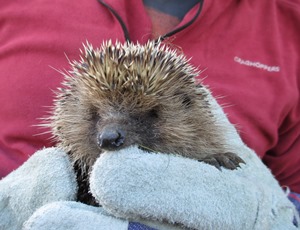Help hedgehogs by reporting roadkill in Reading
Release Date 19 May 2015

Ecologists are asking people in Reading to contribute to vital new research to help the conservation of hedgehogs.
Hedgehog populations in Britain are in trouble, with surveys suggesting their numbers are in steep decline. While changing agricultural practices and a badger resurgence are thought to be to blame, the researchers believe that towns and cities may provide safe havens for the iconic species.
But urban habitats provide their own risks. Now scientists need people to report sightings of dead hedgehogs beside Reading's roads, so they can find out more about how city traffic is affecting British wildlife.
Sadly, many hedgehogs are killed by cars, leading to concerns that main roads may be combining with other obstacles such as rivers to create barriers to their movement. This may be causing a dangerous fragmentation of hedgehog populations, increasing their susceptibility to environmental changes.
Lead researcher Dr Philip Baker said: "Hedgehogs are an iconic British species, but they face growing threats both in the town and the countryside.
'Uncertain future'
"Towns and cities provide surprisingly good habitats for hedgehogs, but if different populations become isolated, they may face an uncertain future.
"Our research is focusing on Reading but our findings will help hedgehog conservation nationwide. That's why we need people in Reading to be on the lookout for hedgehogs which have sadly been killed on the roads, and to report them to us as soon as possible.
"At this time of year, hedgehogs are about to start breeding and this means, unfortunately, that many are likely to be killed on roads as they seek out mates."
While their research may have implications for hedgehog conservation elsewhere in the UK, the research team will not investigate reports of roadkill outside the Reading urban area, so do not require reports from outside Reading.
If you spot a dead hedgehog anywhere in Reading, please text Dr Baker as soon as possible on 07960 212624 or email p.j.baker@reading.ac.uk. Scientists will then recover the body so they can genetically identify the locations of different family groups.
